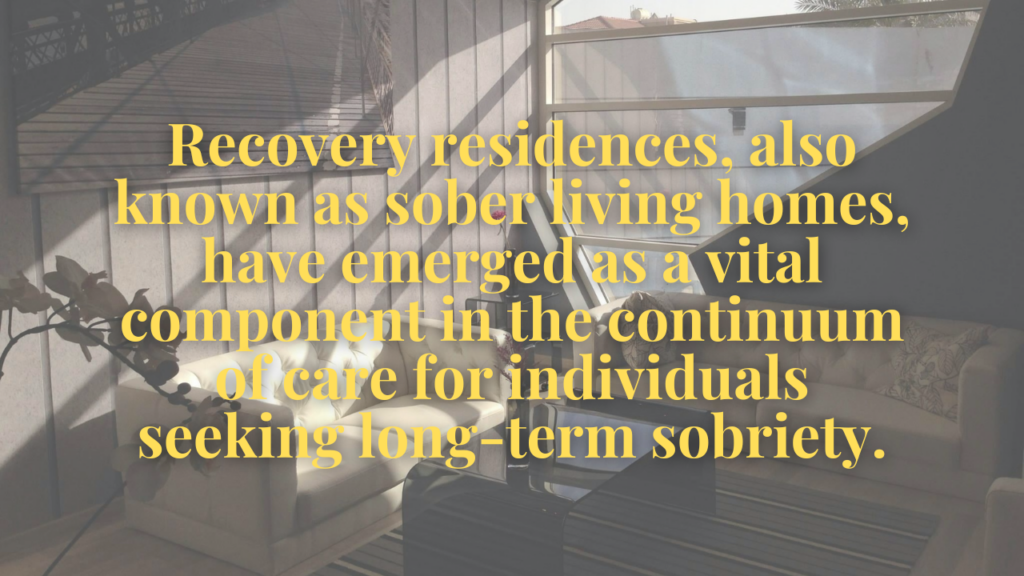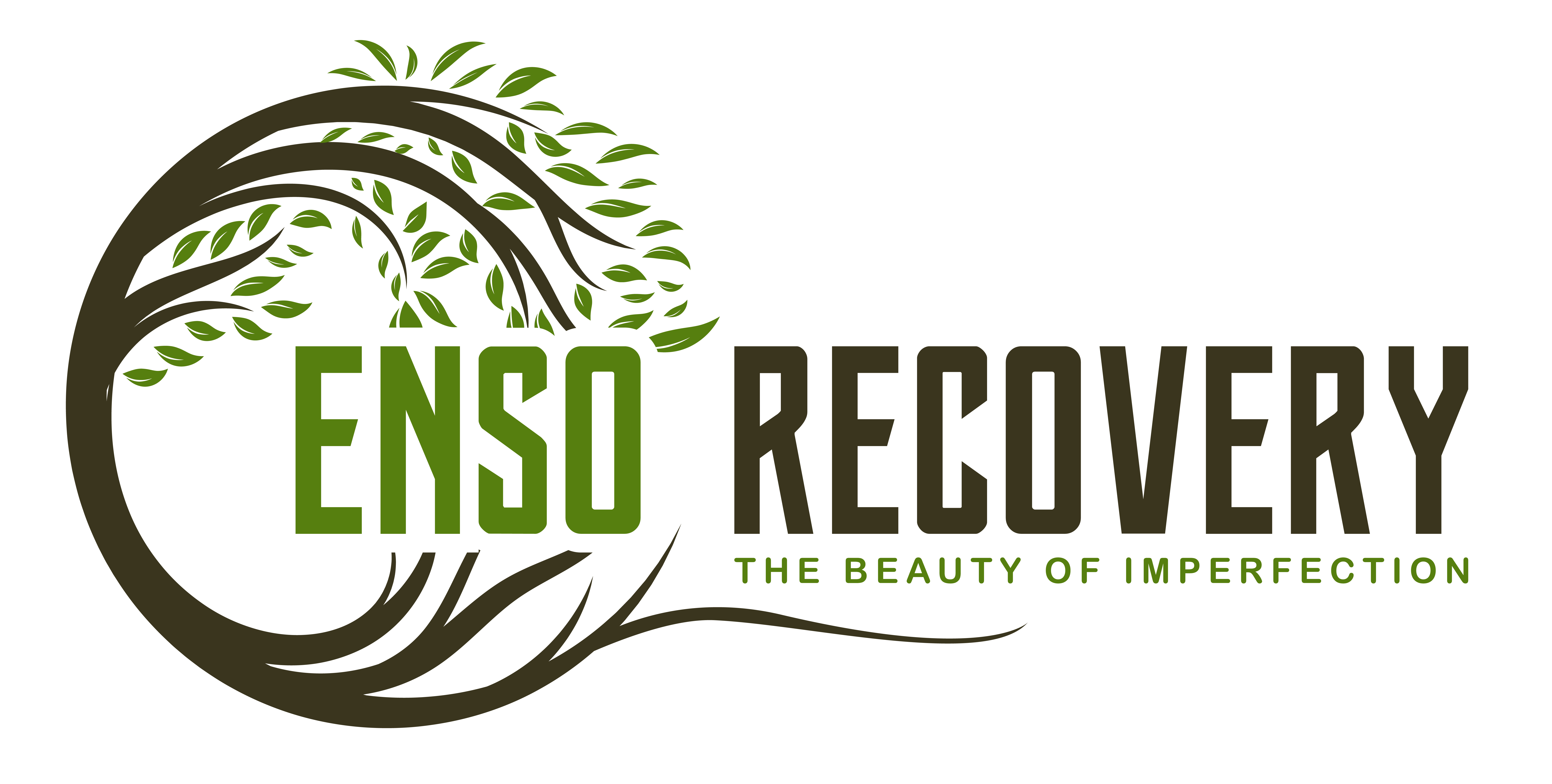A stable and supportive living environment plays a crucial role in the complex journey of addiction recovery. Recovery residences, also known as sober living homes, have emerged as a vital component in the continuum of care for individuals seeking long-term sobriety. At ENSO Recovery, we recognize the importance of these structured living environments in bridging the gap between intensive treatment and independent living.
What Are Recovery Residences?
Recovery residences are alcohol and drug-free living environments for individuals in recovery from substance use disorders. These homes provide a supportive, communal setting where residents can reinforce the skills and habits necessary for maintaining sobriety while gradually reintegrating into society.

The Maine Association of Recovery Residences (MARR) certifies recovery residences in the state, categorizing them into different levels based on the intensity of support and structure provided. At ENSO Recovery, we focus on Level II and Level III recovery residences.
Level II Recovery Residences
Level II homes offer a more structured environment than basic sober living houses. They typically have a house manager and provide some level of administrative oversight. These residences often require participation in recovery support services and may have stricter rules regarding curfews and house responsibilities.
Level III Recovery Residences
Level III homes, also known as supervised living, offer an even higher level of structure and support. These residences are often staffed 24/7 and provide in-house recovery support services. They may also offer life skills training and assistance with employment or education.
Supporting Early Recovery
Recovery residences play a crucial role in supporting individuals in the early stages of recovery, including those on medication-assisted treatment (MAT). Here’s how:
- Structured Environment: A daily routine helps residents develop healthy habits and avoid triggers.
- Peer Support: Living with others in recovery creates a built-in support network.
- Accountability: Regular drug testing and house meetings promote responsibility.
- Life Skills Development: Residents learn to manage finances, maintain a household, and navigate interpersonal relationships.
- MAT Support: Many recovery residences, including those at ENSO Recovery, accommodate individuals on MAT, recognizing its effectiveness in treating opioid use disorders.
The Benefits of Structured Living
Research has consistently shown that structured living environments contribute positively to recovery outcomes. Benefits include:
- Reduced risk of relapse
- Improved employment rates
- Better social functioning
- Increased engagement in outpatient treatment
- Higher rates of long-term sobriety
These benefits stem from the combination of peer support, accountability, and the gradual development of independent living skills that recovery residences provide.
Bridging the Gap
Residences serve as a critical bridge between intensive treatment and independent living. This transition period is often when individuals are most vulnerable to relapse. By providing a supportive living environment, residences help individuals:
- Apply skills learned in treatment to real-world situations
- Gradually increase personal responsibility
- Build a sober support network
- Address co-occurring mental health issues
- Develop strategies for long-term recovery maintenance
The Importance of a Supportive Living Environment
Maintaining long-term sobriety requires more than just abstinence from substances. It involves creating a new lifestyle that supports recovery. A supportive living environment:
- Reduces exposure to triggers and high-risk situations
- Provides immediate support during challenging times
- Fosters a sense of community and belonging
- Encourages the development of healthy coping mechanisms
- Allows for the practice of new skills in a safe environment

ENSO Recovery’s Integrated Approach
At ENSO Recovery, we believe in a comprehensive approach to addiction treatment. Our model integrates sober living with outpatient treatment, providing a seamless continuum of care. This integration allows us to:
- Tailor treatment plans to individual needs
- Provide consistent support across all levels of care
- Address both substance use and co-occurring mental health disorders
- Offer a gradual transition to independent living
- Support long-term recovery through ongoing outpatient services
Challenges and Strategies
While sober living residences offer numerous benefits, residents may face challenges such as:
- Adjusting to communal living
- Managing triggers in a less controlled environment
- Balancing recovery activities with work or education
- Dealing with interpersonal conflicts
ENSO Recovery addresses these challenges through:
- Clear house rules and expectations
- Regular house meetings to address concerns
- On-site staff support
- Conflict resolution training
- Ongoing individual and group therapy
Supporting Physical and Psychological Recovery
ENSO Recovery’s model recognizes that addiction affects both the body and mind. Our approach supports:
- Physical Recovery: Through safe housing, nutrition education, and access to healthcare services.
- Psychological Recovery: Through individual and group therapy, life skills training, and mental health support.
By addressing both aspects, we provide a foundation for comprehensive healing and long-term recovery.
Finding Maine Addiction Treatment At ENSO Recovery’s Recovery Residences
Recovery residences play an indispensable role in the continuum of care for addiction treatment. They provide a supportive bridge between intensive treatment and independent living, offering structure, accountability, and community support crucial for maintaining long-term sobriety.
At ENSO Recovery, we’re committed to providing high-quality residences as part of our comprehensive treatment approach. Our integrated model, combining supportive living environments with outpatient services, offers individuals the best chance at sustained recovery.
If you or a loved one is struggling with substance use disorder, don’t hesitate to reach out. Call ENSO Recovery at 207-245-1800 to learn more about our recovery residences and comprehensive treatment programs in Augusta and Sanford, Maine. Take the first step towards a supportive, sober living environment today.
